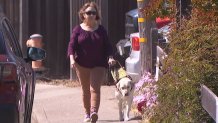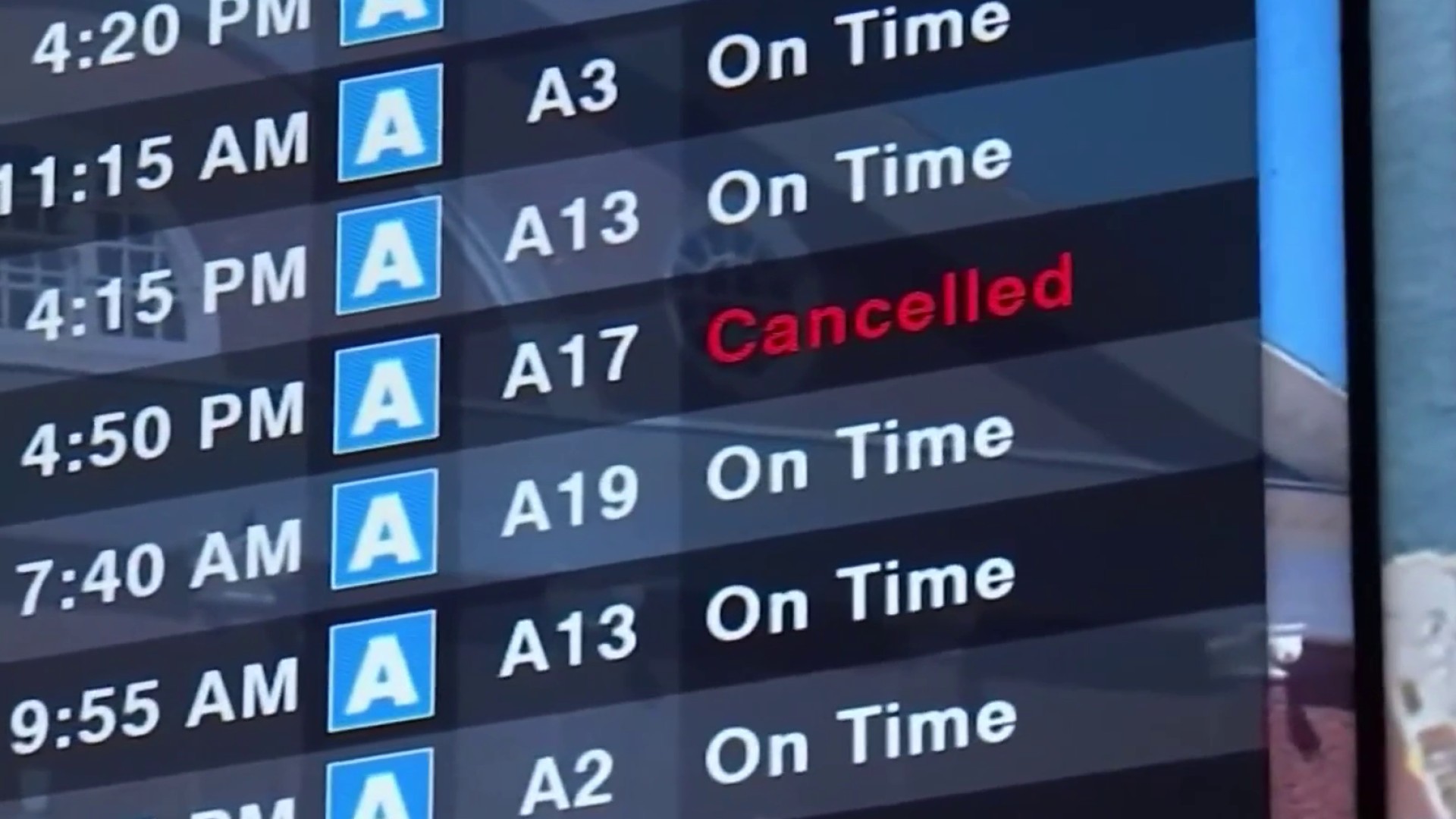Three Bay Area people, all legally blind, tell NBC Bay Area they are still constantly left stranded by Uber and Lyft drivers because of their seeing eye dogs. The years-long issue has caught the attention of the US Department of Justice, this news organization has confirmed through a source with the Department and a national non-profit that says it’s sharing data.
After first hearing from Annalisa DiLeonardo and Linda MacLeod from San Jose in May, NBC Bay Area’s Investigative Unit spoke with Lisa Irving from unincorporated Mill Valley. In 2021, Irving was granted a $1.1 million award against Uber for the refusals she experienced involving her guide dog.

The refusals are a violation of the Americans with Disabilities Act, which prohibits discrimination based on a person’s disability.
“It was landmark award,” Irving said. “I was unable to achieve what I wanted to achieve, and that was to effect change.”
Despite the ruling and other separate similar legal battles and settlements, the problem persists, said Christine Benninger with Guide Dogs for the Blind based in San Rafael.
“Things have gotten worse…We get phone calls on a daily basis,” she said.
Benninger said her non-profit is working with the DOJ’s Civil Rights Division and sharing data on the rideshare refusals. Her organization recently found 83% of their clients reported being denied rides.

“A number of clients are actually evaluating whether they would get another guide dog again. And the sad part of that is, a guide dog is much more than purely safe travel,” Benninger said. “It’s your bridge to the community.”
Get a weekly recap of the latest San Francisco Bay Area housing news. Sign up for NBC Bay Area’s Housing Deconstructed newsletter.
Local
If the Justice Department takes action against Uber or Lyft, it would not be the first time. Three years ago, the DOJ sued Uber for failing to modify its wait time fees for riders with disabilities who need more time to get to pick-up locations. Uber agreed to a multi-million-dollar settlement and reimbursed more than 65,000 Uber users who, according to the DO J, were charged discriminatory fees.
As for guide dogs, Uber told NBC Bay Area’s Investigative Unit:
"Guide dog and assistive device users deserve to have a safe, respectful, and welcoming experience when using the Uber platform. We have a clear policy prohibiting drivers from denying service because of a rider’s service animal or assistive device. Before drivers can use the Uber Driver App, they are required to specifically acknowledge that they understand this policy and that there are no exceptions. Drivers are regularly reminded of their obligations under this policy. If a rider is inappropriately denied a ride, they should immediately report the issue to Uber so we can take appropriate action, which may include permanent deactivation of a driver’s account. We remain committed to improving and implementing technology and policies that make transportation more accessible."
In a statement, a Lyft spokesperson said:
"Lyft has a strict Service Animal policy that requires all drivers to accommodate passengers traveling with service animals, and we take any allegation of this nature very seriously. There is no place for any form of discrimination on our platform and we ask that riders report issues immediately."
Irving feels these policies aren’t enough, and people with guide dogs need to report the refusals to the DOJ, not just Uber and Lyft.
This summer, Irving took an Uber home from her birthday dinner. She said the driver waited in front of her driveway to report a complaint about her and her guide dog. Her app shows Uber charged Irving a cleaning fee. The company waived the fee after she complained, but it’s another reminder, she said, she’s not getting a fair ride.



